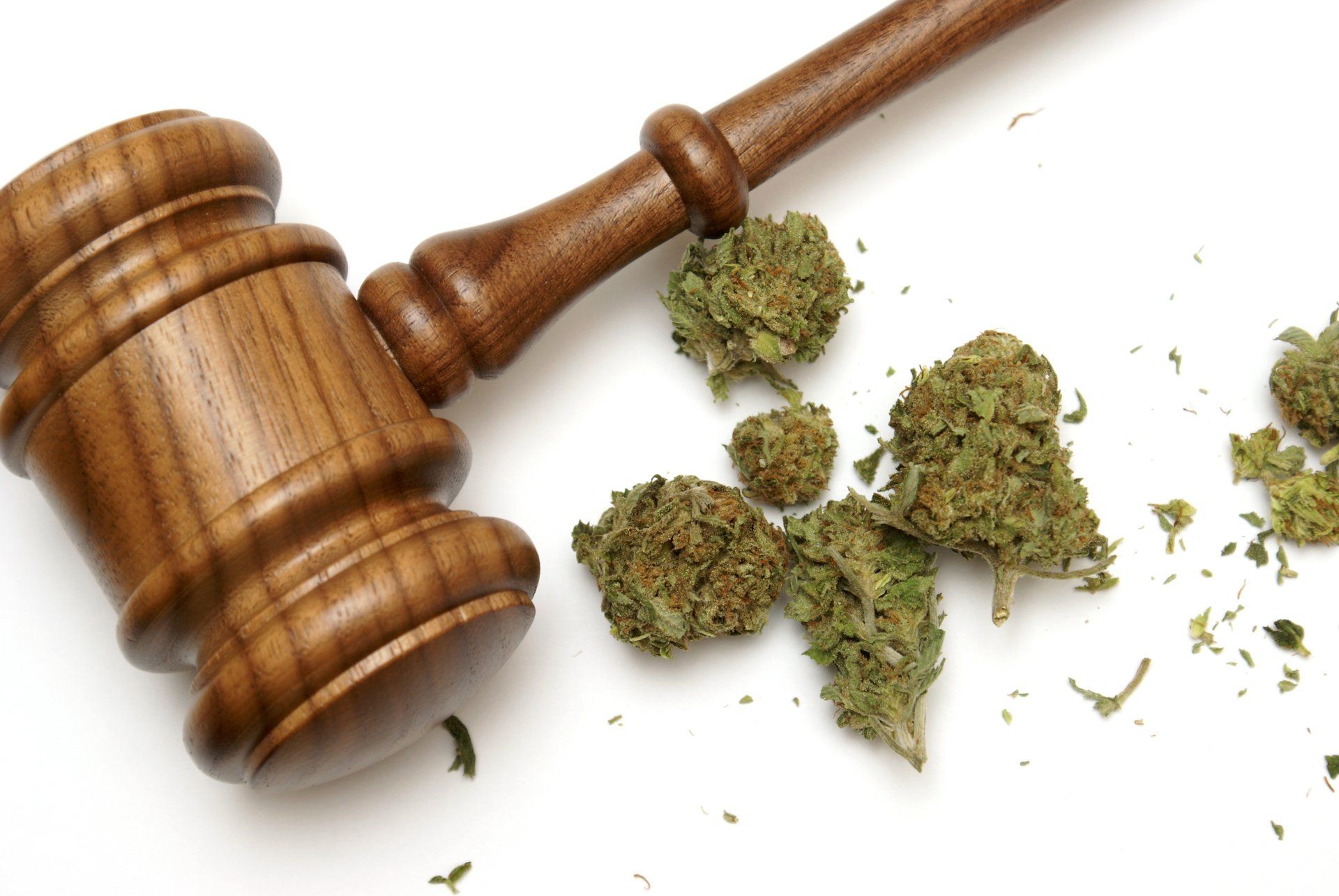Downward Departures from the Florida Sentencing Guidelines
- By Antonio D. Quinn, Esq.
- •
- 23 Jul, 2019
- •
Grounds for a Downward Departure Under Florida Law

The Florida Sentencing Guidelines
Florida Circuit Court Judges in Florida are limited in terms of the range of sentence that they may pronounce upon a criminal defendant by the Florida Sentencing Guidelines. The rationale behind the sentencing guidelines is based upon the desires of the legislature to have uniformity with respect to sentencing. The sentencing guidelines were enacted in Florida in 1983 due large in part to concerns that some criminal defendants were being treated preferentially to others with respect to sentencing. The sentencing guidelines were largely reconfigured in 1994 with a focus upon the idea that prison resources are limited and that prisons sentences should be reserved for those who commit violent offenses or who are repeat offenders. The sentencing guidelines operates via a mathematical formula which calculates an offender's sentencing range based upon the seriousness of the current offense and the individual's history with the criminal justice system. Under the current form of the Florida Sentencing Guidelines, Judges are authorized at their discretion to apply an upward departure of up to 25% above the calculated prison sentence. Unfortunately, judges do not have the same latitude when it comes to granting a downward departure to a criminal defendant. If a defendant's score is calculated to be greater that 44, then a Judge is legally bound to sentence an offender to a state prison sentence absent statutory grounds for a downward departure from the sentencing guidelines. This fact is one of the many reasons why it is imperative to be represented by an experienced criminal defense attorney when facing criminal charges in Florida. A competent and experienced criminal defense lawyer will do everything possible to obtain a downward departure for their client, avoiding the often Draconian result of sentencing calculation via Florida's Sentencing Guidelines.
Grounds for Downward Departure
Fla. Stat. 921.0026 sets out the mitigating factors which provide grounds for a downward departure under Florida law. One interesting facet of the statute is the fact that whether a Defendant has demonstrated sufficient mitigating factors to justify a downward departure is subject to appellate review, however the extent of a downward departure is not. This means that a Judge is constrained as to whether or not they have the authority to grant a departure, however once a downward departure is granted, the degree to which the sentence is reduced from that calculated by the guidelines is not not subject to review.
a) The downward departure was the result of an uncoerced and legitimate plea bargain. This inclusion of this mitigating factor in the statute frees the State Attorney's office from the constraints of the sentencing guidelines. If a case is resolved via the sentencing guidelines, then the mandatory minimum sentence permissable under the guidelines does not apply.
b) The defendant was an accomplice to the crime and was a relatively minor participant with regard to the criminal conduct. This mitigating factor permits the court to have latitude with regard to sentencing when one co-defendant is more or less culpable than his or her co-defendants.
c) The capacity of the defendant to appreciate the criminal nature of their conduct or to conform that conduct to legal requirements was substantially impaired. This is essentially a mental health defense. If at the time that a crime is committed, an individual is suffering from a mental condition which affects their ability to understand the implications of their actions, then that condition is a mitigating factor which authorizes a Circuit Court Judge to depart from the sentence calculated by the Florida Sentencing Guidelines.
d) The defendant requires specialized treatment for a mental disorder that is unrelated to substance abuse or addiction or to a physical disability and the individual is amenable to treatment. This statutory mitigating factor usually works in concert the the factor in subsection "c" and allows for the operation of diversionary mental health courts. In such situations, if a person qualifies for inclusion into a mental health court program, then their case is transferred to a special mental health court judge and a course of treatment will be ordered following a mental health evaluation.
e) The need for payment of restitution to the victim outweighs the need for a prison sentence. This factor is utilized most often in theft cases where a criminal defendant has had relatively limited previous contacts with the criminal justice system.
f) The victim was the initiator, aggressor, willing participant or provoker of the incident. This mitigating factor arises most often in cases of battery or manslaughter and provides a basis for a downward departure under circumstances where a victim was an aggressor, however the defendant's acts did not qualify as those subject to immunity under the Stand Your Ground laws.
g) The defendant committed the offense due to domination by another person or extreme duress. Although listed as a mitigating factor, extreme duress or domination by another person can negate the mens rea of an offense which would provide a defense to the underlying charge prior to sentencing.
h) The victim was substantially compensated before the identity of the defendant was known.
i) The defendant provided cooperation with the State to resolve the offense or any other offense. This factor allows for the Courts to grant a downward departure when a criminal defendant provides information to the police or prosecution which leads to the arrest and/or conviction of other culpable individuals.
j) The offense was committed in an unsophisticated manner and was an isolated incident for which the defendant has shown remorse.
k) At the time of the offense, the defendant was too young to appreciate the consequences of the offense.
l) The defendant is to be sentenced as a youthful offender. Youthful offender status is available to defendants who are less than 21 years of age at the time of sentencing in Florida. Youthful offender status effectively limits the court in terms of the maximum sentence that may be imposed. Youthful offender status is not available to individuals who have been found guilty of a life felony, however when a person does qualify for youthful offender status, the court may not sentence them to a term in excess of 6 years in in Florida State prison.
m) The defendant’s crime is a nonviolent felony, the defendant’t total sentence points are 60 points or fewer, and the court determines that the defendant is amenable to the services of a post-adjudicatory treatment-based drug court program and is otherwise qualified to participate in the program as part of the sentence.
n) The defendant was making a good faith effort to provide or obtain medical assistance for a person experiencing a drug-related overdose.
Any individual who is facing sentencing under Florida's sentencing guidelines should be represented in Court by an experienced criminal defense lawyer. The law of downward departures is very complex and it takes an experienced and knowledgeable criminal defense lawyer to successfully make a case for a downward departure before a Florida Circuit Court Judge. Quinn Law, P.A. offers free case evaluations to those facing criminal charges in South Florida. Call (954) 463-0440 or toll free (844) ADQ-LAW4 to set up an appointment and begin the process of seeking the best possible outcome for your situation.
Florida Circuit Court Judges in Florida are limited in terms of the range of sentence that they may pronounce upon a criminal defendant by the Florida Sentencing Guidelines. The rationale behind the sentencing guidelines is based upon the desires of the legislature to have uniformity with respect to sentencing. The sentencing guidelines were enacted in Florida in 1983 due large in part to concerns that some criminal defendants were being treated preferentially to others with respect to sentencing. The sentencing guidelines were largely reconfigured in 1994 with a focus upon the idea that prison resources are limited and that prisons sentences should be reserved for those who commit violent offenses or who are repeat offenders. The sentencing guidelines operates via a mathematical formula which calculates an offender's sentencing range based upon the seriousness of the current offense and the individual's history with the criminal justice system. Under the current form of the Florida Sentencing Guidelines, Judges are authorized at their discretion to apply an upward departure of up to 25% above the calculated prison sentence. Unfortunately, judges do not have the same latitude when it comes to granting a downward departure to a criminal defendant. If a defendant's score is calculated to be greater that 44, then a Judge is legally bound to sentence an offender to a state prison sentence absent statutory grounds for a downward departure from the sentencing guidelines. This fact is one of the many reasons why it is imperative to be represented by an experienced criminal defense attorney when facing criminal charges in Florida. A competent and experienced criminal defense lawyer will do everything possible to obtain a downward departure for their client, avoiding the often Draconian result of sentencing calculation via Florida's Sentencing Guidelines.
Grounds for Downward Departure
Fla. Stat. 921.0026 sets out the mitigating factors which provide grounds for a downward departure under Florida law. One interesting facet of the statute is the fact that whether a Defendant has demonstrated sufficient mitigating factors to justify a downward departure is subject to appellate review, however the extent of a downward departure is not. This means that a Judge is constrained as to whether or not they have the authority to grant a departure, however once a downward departure is granted, the degree to which the sentence is reduced from that calculated by the guidelines is not not subject to review.
a) The downward departure was the result of an uncoerced and legitimate plea bargain. This inclusion of this mitigating factor in the statute frees the State Attorney's office from the constraints of the sentencing guidelines. If a case is resolved via the sentencing guidelines, then the mandatory minimum sentence permissable under the guidelines does not apply.
b) The defendant was an accomplice to the crime and was a relatively minor participant with regard to the criminal conduct. This mitigating factor permits the court to have latitude with regard to sentencing when one co-defendant is more or less culpable than his or her co-defendants.
c) The capacity of the defendant to appreciate the criminal nature of their conduct or to conform that conduct to legal requirements was substantially impaired. This is essentially a mental health defense. If at the time that a crime is committed, an individual is suffering from a mental condition which affects their ability to understand the implications of their actions, then that condition is a mitigating factor which authorizes a Circuit Court Judge to depart from the sentence calculated by the Florida Sentencing Guidelines.
d) The defendant requires specialized treatment for a mental disorder that is unrelated to substance abuse or addiction or to a physical disability and the individual is amenable to treatment. This statutory mitigating factor usually works in concert the the factor in subsection "c" and allows for the operation of diversionary mental health courts. In such situations, if a person qualifies for inclusion into a mental health court program, then their case is transferred to a special mental health court judge and a course of treatment will be ordered following a mental health evaluation.
e) The need for payment of restitution to the victim outweighs the need for a prison sentence. This factor is utilized most often in theft cases where a criminal defendant has had relatively limited previous contacts with the criminal justice system.
f) The victim was the initiator, aggressor, willing participant or provoker of the incident. This mitigating factor arises most often in cases of battery or manslaughter and provides a basis for a downward departure under circumstances where a victim was an aggressor, however the defendant's acts did not qualify as those subject to immunity under the Stand Your Ground laws.
g) The defendant committed the offense due to domination by another person or extreme duress. Although listed as a mitigating factor, extreme duress or domination by another person can negate the mens rea of an offense which would provide a defense to the underlying charge prior to sentencing.
h) The victim was substantially compensated before the identity of the defendant was known.
i) The defendant provided cooperation with the State to resolve the offense or any other offense. This factor allows for the Courts to grant a downward departure when a criminal defendant provides information to the police or prosecution which leads to the arrest and/or conviction of other culpable individuals.
j) The offense was committed in an unsophisticated manner and was an isolated incident for which the defendant has shown remorse.
k) At the time of the offense, the defendant was too young to appreciate the consequences of the offense.
l) The defendant is to be sentenced as a youthful offender. Youthful offender status is available to defendants who are less than 21 years of age at the time of sentencing in Florida. Youthful offender status effectively limits the court in terms of the maximum sentence that may be imposed. Youthful offender status is not available to individuals who have been found guilty of a life felony, however when a person does qualify for youthful offender status, the court may not sentence them to a term in excess of 6 years in in Florida State prison.
m) The defendant’s crime is a nonviolent felony, the defendant’t total sentence points are 60 points or fewer, and the court determines that the defendant is amenable to the services of a post-adjudicatory treatment-based drug court program and is otherwise qualified to participate in the program as part of the sentence.
n) The defendant was making a good faith effort to provide or obtain medical assistance for a person experiencing a drug-related overdose.
Any individual who is facing sentencing under Florida's sentencing guidelines should be represented in Court by an experienced criminal defense lawyer. The law of downward departures is very complex and it takes an experienced and knowledgeable criminal defense lawyer to successfully make a case for a downward departure before a Florida Circuit Court Judge. Quinn Law, P.A. offers free case evaluations to those facing criminal charges in South Florida. Call (954) 463-0440 or toll free (844) ADQ-LAW4 to set up an appointment and begin the process of seeking the best possible outcome for your situation.




